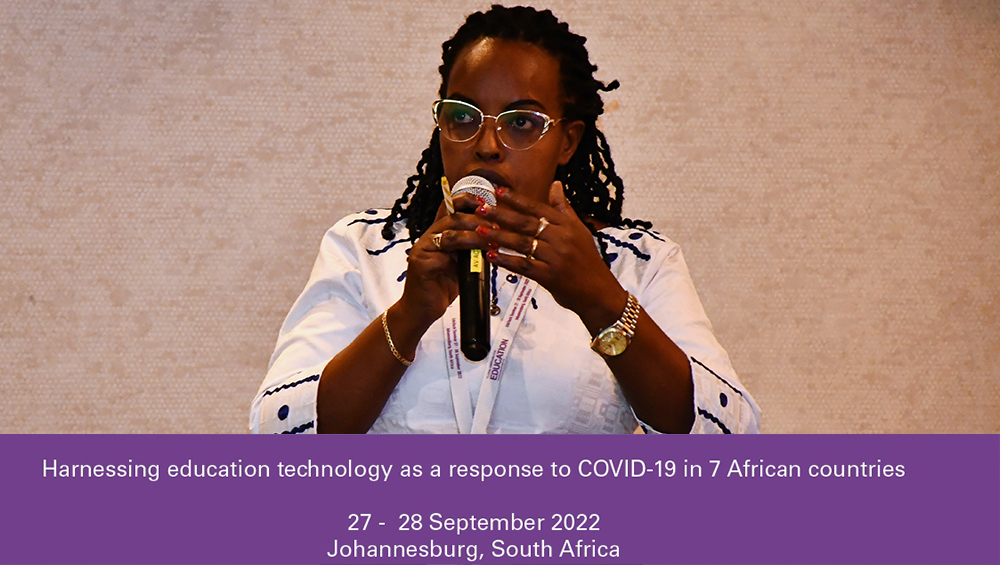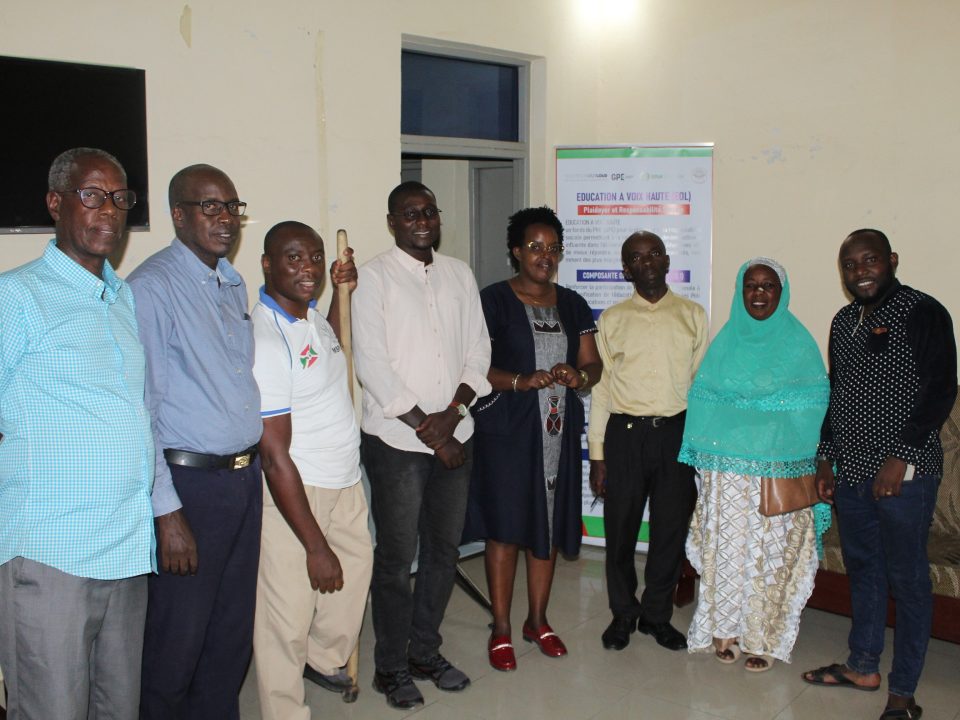EPT BAFASHEBIGE : Solutions numériques au service de l’éducation de base au Burundi

RAPPORT DES ACTIVITES ANNUELLES 2021
28 septembre 2022
Tous ensemble dans le processus de lutte contre la marchandisation de l’éducation
17 octobre 2022Harnessing Education Technology Research Seminar Lessons and Best Practices from Burundi
Dear members
GCE is happy to share with you the reflective lessons from Burundi following the two-day seminar on Harnessing Education Technology as a Response to COVID-19 in Johannesburg, South Africa, from 27 to 28 September 2022. All project partners from Burundi, Democratic Republic of Congo, Madagascar, Malawi, Namibia, Rwanda, and Zambia; were convened to share their country-level research initiatives on education technology as well as lessons learned and best e-learning practices.
Lessons and best practices from Burundi
Presented by Denise Kandondo, National Coordinator of EPT BAFASHEBIGE.
From the start of the pandemic, Burundi was one of the first countries in the sub-region to adopt a national COVID-19 response plan, under the leadership of the Ministry of Health, with the support of other development partners. Unlike many countries around the world, schools in Burundi never closed during the pandemic. The students finished the 2020 school year as normal and then returned to class at the start of the school year in 2021. Officially, preventive measures were observed and respected, although it was difficult to implement them in several schools, especially in rural areas. Through the Education in Emergencies Task Force (GoT ESU), the education sector was the first to put in place a COVID-19 response sector plan that drew on and aligned with the national response plan. Since Burundi never closed schools during the pandemic, not much work was done to digitise education which informed the Coalition’s intervention strategy given that beyond COVID-19, Burundi is a victim of floods and other natural disasters.
Despite having adopted steps to mitigate the contraction and spread of COVID-19 in schools, Burundi grappled with the following issues in relation to e-learning:
- School-based learning is not yet digitized;
- Lessons are always done using chalk, and students are expected to be physically present in class. Innovative digital learning technology in the education sector is not well mastered by Burundian teachers;
- There is also a lack of computers, compounded by electricity problems in schools. Schools in the most remote corners of the country neither have electricity nor computers and
- There is lack of or limited internet connectivity in basic education facilities (rural and urban);
EPT BAFASHEBIGE intervention and results
Through the GCE’s Harnessing EduTech Project funded by GIZ, EPT BAFASHEBIGE undertook a study entitled, “Digital Solutions at the Service of Basic Education in Burundi”. The study identified and initiated digital education in a few pilot schools to raise awareness among stakeholders in the education sector on the importance of EduTech so that it can be scaled up nationally. The study also proposed solutions in line with the digitisation of education which included;
- Teachers undergoing ICT training and adopting mixed learning techniques that promote both face-to-face and eLearning methods;
- The government is investing more in the procurement and distribution of computers, availability of electricity in all parts of the country and investment in internet connectivity at all learning facilities; and
- The government is adopting and adapting other learning techniques to promote distance learning (using online tools and social media platforms such as Youtube, WhatsApp, radio, and television) to deal with the problem of overcrowding in Burundian schools.
Since the Coalition initiated this project, the government has joined hands with them to roll out EduTech. In addition, various platforms have been created to promote dialogue and collaboration in digitising education between Civil Society Organisations and other players. Although there is more work to be done, the government is now working on an ICT policy and is prepared to take over and finance this project, which is a good sign and the right step in the right direction.
https://www.youtube.com/watch?v=YKxiM9RaxOY
https://www.youtube.com/watch?v=0Ha_XzMlFcY
https://www.flickr.com/photos/campaignforeducation/albums/72177720302463093
https://www.flickr.com/photos/campaignforeducation/albums/72177720302471557/with/52390904469/
In Solidarity,
The GCE Secretariat.



